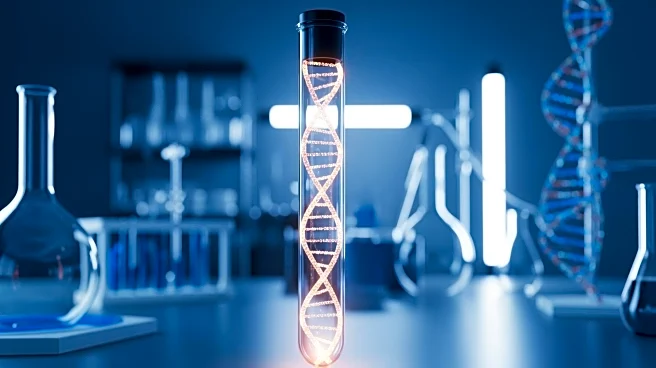What's Happening?
Advancements in genetic technology have brought scientists closer to potentially resurrecting Neanderthals, raising significant ethical and practical concerns. George Church, a Harvard professor, has suggested that Neanderthals could be brought back by
reconstructing their genome in human stem cells. However, experts argue that such an endeavor is fraught with ethical issues and technological challenges. The process would require a human surrogate and could face immune system incompatibility. Despite the theoretical possibility, many scientists believe the ethical implications outweigh the potential benefits.
Why It's Important?
The discussion around resurrecting Neanderthals touches on broader ethical questions in genetic research and de-extinction efforts. It highlights the potential for scientific advancements to challenge existing moral frameworks, particularly concerning consent and the treatment of resurrected beings. The debate also underscores the importance of considering the societal impact of such scientific endeavors, including the potential isolation and exploitation of resurrected Neanderthals. This conversation is crucial as genetic technologies continue to evolve, prompting the need for robust ethical guidelines.
What's Next?
The scientific community may engage in further discussions to establish ethical guidelines for de-extinction projects, particularly those involving human ancestors. Regulatory bodies could consider implementing stricter controls on genetic research to prevent unethical practices. As technology advances, there may be increased pressure to explore the potential benefits of resurrecting extinct species, balanced against ethical considerations. Public discourse on the topic could influence policy decisions and shape the future direction of genetic research.
Beyond the Headlines
The potential resurrection of Neanderthals raises questions about the definition of humanity and the rights of genetically engineered beings. It challenges existing legal frameworks regarding genetic manipulation and the creation of life. The debate also reflects broader societal concerns about the implications of playing 'God' with genetic technology, including the risks of unintended consequences and the moral responsibility of scientists. This issue may prompt a reevaluation of ethical standards in scientific research.
















